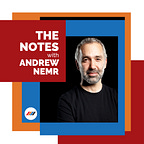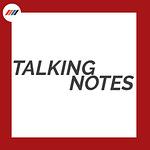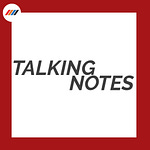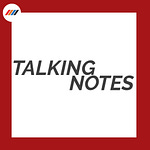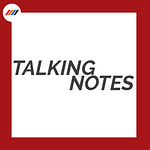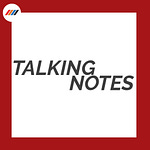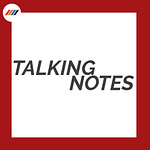The 23rd Psalm is quite pervasive. There are commonly quoted lines like, “The Lord is my shepherd, I shall not want,” and “Though I walk through the valley of the shadow of death I shall fear no evil.” There are also lines that have been misquoted or misunderstood at times. For example, it took me many years to come to a more complete understanding of the line, “Your rod and your staff, they comfort me.” I had been taught, by someone, somewhere, that this line had to do with correction, and that the correction often came with pain, as if through the impact of a rod or staff.
There are a lot of things to unpack here, the fact that wrong teaching exists, that being taught wrongly can have immense ramifications, and the idea that correction always has to be painful.
The tap dancer Bubba Gaines, in taking on Bettye Morrow as an apprentice, told her that he was happy to teach her because she hadn’t been taught wrong. In Tap Dance Land wrong teaching is also pervasive. Wrong teaching is not about having different styles, it is about teaching a way that makes it impossible for the student to progress without unlearning what they have been taught previously. For example, the Paddle and Roll is a common step in Tap Dance Land. It produces four sounds when executed. There are ways of teaching the Paddle and Roll that will prevent students from being able to increase speed without unlearning old technique and relearning new technique. If the students were taught correctly in the first place, they would be able to increase speed with little problem. There would be no need to unlearn.
The challenge of being taught wrongly is that wrong teaching becomes habituated. Other teaching is built upon it. Entire ways of thinking and doing may be built upon wrong teaching. Today these wrong teachings might be called limiting beliefs. There are entire programs built upon helping people unearth them, replace them, and start the building process again. The insiduous nature of wrong teaching is that a student being taught will not know that they are being taught wrongly. How can they? The relationship between student and teacher is one where the student is assumed to trust the teacher, and the teacher is assumed to be teaching rightly. That’s not to say that the student can’t question (although in some situations it may be discouraged). It is to say that students should be able to trust that their teacher is teaching them what is right in whatever area of knowledge they are learning. Otherwise, why are they learning from them?
So, how does this apply to this line in the Psalms. What if I told you that correction, which instigates change, does not have to be undergirded by pain? What if there was a way in which change could be entered into enthusiastically? What if even if a correction was jarring, the pain of letting go, or the impact, needn’t be the focus?
Shepherds in the days of Jesus Christ were a curious bunch. So curious, that they weren’t really considered connected to the regular life of people. They were recluse, living for months on end in isolated regions of pasture with their flock. They tended to their flock intimately, protecting and correcting them. They new their sheep individually, and their sheep new their voice. The sheep in turn were completely reliant on the shepherd for provision, guidance, and protection.
There is a common analogy in the Christian tradition that people are like sheep and God is the good shepherd. We have our own ways, and these ways are always at odds with God. We have self reliance, and we are required to be reliant on God, for example. This analogy, setting man and God at odds sets a stage for the idea of punitive correction. If we are continually at odds with God, of course our correction will feel painful. We will likely resist it. Our desire will never be for correction (or even protection) especially from a shepherd we’d rather not have to deal with.
There is another way. The sheep know their shepherd’s voice…and follow.
Human beings may resemble sheep in analogous ways, but we are not sheep by nature. This is important in thinking about how it might be that a rod and staff might become comforting. I used to think that the pain of correction would become a comfort as I came to see the benefit of the correction – regardless of the pain. I leaned on ideas like, every tribulation is an opportunity for learning, or no pain to gain. These of course are general ideas that people have used to think about how to deal with the pain that life can have in it. Even when I burnt out, I was still found saying, “I don’t mind the pain of all of this (and it was very painful) if the work is worthwhile.” I had been deeply formed in ideas that clearly connected pain to progress but hadn’t articulated the role of love or relationship in the journey as clearly.
There is something powerful about a resonant voice, one that stirs up something deep within us. The proposition of a life categorically different than the one I had been formed in is what I heard in the words of Jesus Christ, and he changed my view. Pain may come, or it may not, regardless, pain is not the way. Jesus Christ is the way. Correction may be difficult to experience, or it may not be. The difficulty of the correction we experience is not the measure of being on the right path. Pursuing the right thing is the measure of being on the right path.
The hearing of Jesus Christ’s words was just the start for me. They were so curious, and I was in such a state, that I began to follow. I followed the person – not the words, or the principles, or the values. This was easy for me as I was used to following people in Tap Dance Land. Following is what human beings do. We might think that we don’t, but we actually follow more than we lead. We follow our imaginations, visions, desires, and other people. And this activity of following is what forms and shapes our lives most intimately.
The idea that gain without pain was no gain at all, set my life in a direction towards resistance. I didn’t know what it meant to do something with ease. I didn’t know how to rest. I didn’t want to know, because anything that was easy couldn’t be worthwhile, because it couldn’t be painful. No pain, no gain.
After burnout I desired a life of ease more than anything else. I also wanted to be sure that I was still on the right path, doing good work, growing, aiming for the good life and becoming a really good person. Could this be possible?
The rod and staff of Psalm 23 are two tools that the shepherd uses for the benefit of the sheep, and neither were inherently punitive. The rod was a short and sturdy wooden stick used to fend off wild animals that pose a risk to the safety of the flock. The staff was a thinner and longer wooden stick that was used to guide the sheep. A hook at the top of the staff would be used if a sheep ever got stuck. Learning this helped me understand that correction and protection were not punitive by nature. But it goes deeper.
The rod and the staff are just tools. They are used by the shepherd. When and how they are used are determined by the character of the shepherd. Of course, the power and strength of someone that can protect you is a scary thing if there is a risk that that power and strength can be turned against you. Of course the enacting of correction can be bothersome and restrictive if we conceive of that interaction as something that is not in our best interest. Maybe something we have to go through, but really don’t desire. What if it was different?
If the power and strength of the shepherd was really there for our protection and not our destruction, we could lean into safety. If the experience of correction was part of growing into the kind of person we wanted to be we could lean into the process, even anticipate it.
Of course, all of this hinges on whether or not we trust the shepherd, which returns us to the idea of who we are following. Do we trust the teachers we are being lead by? Are what we learning reflective of reality? Or are we finding ourselves having to unlearn years of formation in order to experience a different kind of life?
Wherever we might be on the journey, it is worth while having a safe place to reflect. There we can check-in with the ideas that have organized our life, and work out any corrections that may be needed.

